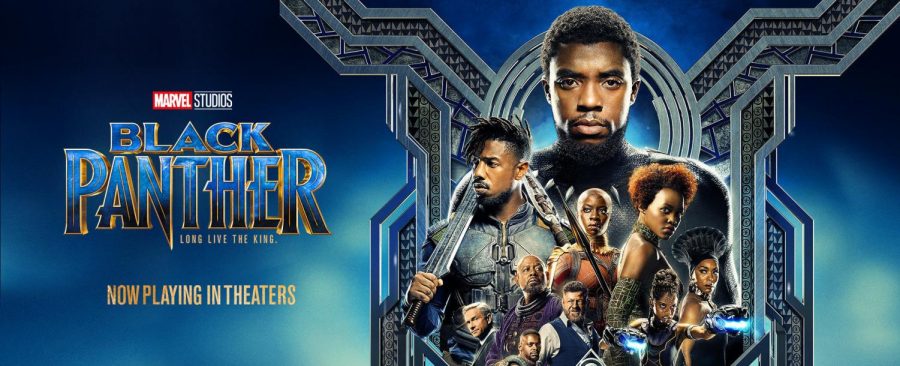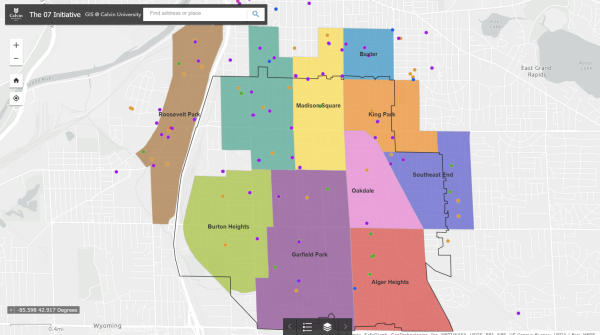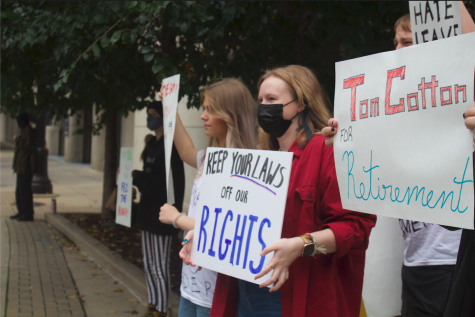MSDO rents out theatre, showcases ‘Black Panther’
“Black Panther” is a film that celebrates African culture and has sparked discourse. Photo is promotional material for the movie / Disney.
Update: A previous version of this article incorrectly stated that “Black Panther” was the “[F]irst Marvel film in history centering on a black superhero.”
Marvel’s “Black Panther” attracted millions to the box office this past weekend, including Calvin’s multicultural student development office (MSDO) and students.
MSDO rented a theatre at Celebration! Cinema North on Feb. 16. Over 60 students attended — costume, make-up and all — in anticipation of the most recent Marvel film to center on a black superhero.
According to Variety, “Black Panther” hit $235 million at the box office in and outside of the United States over the weekend, and those numbers are expected to rise. Khayree Williams, assistant dean for MSDO, remarked this sends an important message to the film industry and viewers who are critical of its international reach.
“Money talks,” Williams said. “The numbers say you can have a predominant cast of people of color, you can have a film about Africa be represented and central to the narrative … and still reach a broad audience.”
Set in the fictitious country of Wakanda, Africa, “Black Panther” and its story have impacted audience members’ perspectives of the real world.
Junior Taj Smith commented how the film acknowledged African and African-American female empowerment.
“I think it’s great that the black women in the film were portrayed in a way where they weren’t sexualized.”
Smith went on to comment that “Black Panther” highlighted a female empowerment that was autonomous from any male role in the story.
“I didn’t feel like the [women] were there only because they were attached to another person.”
Williams believes the depiction of African and African-American people and the diversity of culture and resources were celebrated in the film, as opposed to how Africans and African-Americans are often depicted in the media.
“The true manifestation of Africa, in terms of resources, is a truly rich continent,” he said. “But Africa is, in many ways very poor, because colonizers have stripped a lot of the resources from the continent.”
Wankanda’s world envisions the sharing of resources and technology, Williams commented. Smith added that this vision is important, but our own world often doesn’t reflect that.
“I feel grief over that. This Africa, this Wakanda is not real. That was kind of hard,” she said.
Senior Elyse Hill described “Black Panther” as thoroughly beautiful. The casting, narrative allusions and costumes highlight the multiplicity of African heritage, she said.
Each character in “Black Panther” suggests different perspectives of justice for their world, according to Hill. T’Challa, played by actor Chadwick Boseman, strives to protect his people, while Nakia, played by actress Lupita Nyong’o, looks toward an extended restorative justice beyond Wakanda.
“The film raises questions for Black Americans, Afro-Caribbeans, Black South Americans, and continental Africans as we figure out how to interact with one another,” Hill said.
A central question for Hill and others to continue pondering is “What does black liberation look like?”














Philip Ammar • Feb 21, 2018 at 10:33 pm
“[F]irst Marvel film in history centering on a black superhero”
https://en.wikipedia.org/wiki/Blade_(film)